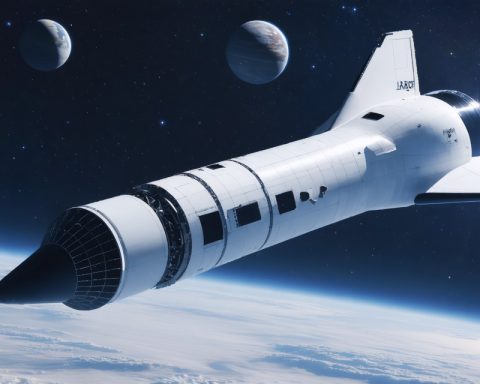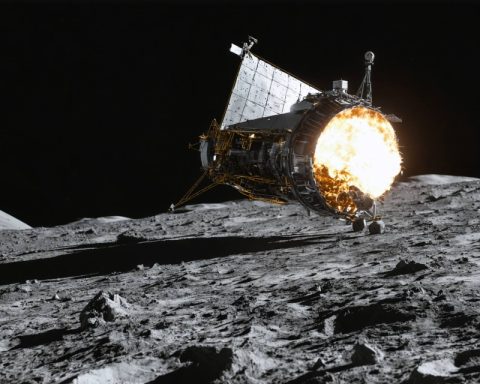SpaceX has recently been chosen to lead a groundbreaking initiative in national security space launch operations, marking a significant milestone in the realm of space technology. The $733 million contract awarded to SpaceX by the US Space Force signifies a pivotal shift towards enhanced defense capabilities through sophisticated satellite deployment.
Under the purview of the US Space Force’s National Security Space Launch (NSSL) Phase 3 Lane 1 program, SpaceX will oversee a series of critical missions aimed at bolstering the nation’s security infrastructure. The project encompasses a total of eight launches, with seven dedicated to the Space Development Agency (SDA) and one mission specifically designated for the National Reconnaissance Office (NRO).
These future missions are slated for a launch window commencing in 2026 and are anticipated to leverage SpaceX’s cutting-edge Falcon 9 rocket technology, showcasing the company’s prowess in delivering reliable and efficient launch services for vital national security objectives.
The satellites to be deployed by SpaceX will be instrumental in advancing crucial operations such as missile detection, communication networks, and intelligence gathering, underscoring the integral role of space technology in modern defense strategies.
While facing competition from other industry players like United Launch Alliance (ULA) and Blue Origin, SpaceX emerged as the preferred contractor for this high-stakes venture, solidifying their position as a pioneering force in the military space domain.
SpaceX Secures Major Contract for National Security Missions and Expansion in Space Technology
SpaceX’s recent acquisition of a $733 million contract from the US Space Force represents a monumental step in bolstering national security through cutting-edge space technology. As SpaceX gears up to spearhead the NSSL Phase 3 Lane 1 program, several key questions arise in relation to this groundbreaking initiative.
What Are the Key Implications of SpaceX’s Contract Win?
SpaceX’s contract win underscores the company’s growing dominance in the space industry, particularly in the realm of national security space launch operations. The award signifies a strong vote of confidence in SpaceX’s capabilities and highlights the pivotal role of private companies in advancing crucial defense objectives.
What Challenges Might SpaceX Encounter in Executing the Contracted Missions?
One of the primary challenges facing SpaceX in executing the contracted missions is ensuring the seamless integration of advanced satellite technologies for missile detection, communication networks, and intelligence gathering. Additionally, the stringent security requirements and technical complexities associated with national security missions pose formidable challenges that SpaceX must navigate adeptly.
Advantages of SpaceX’s Involvement in National Security Space Launch Operations:
1. Technological Innovation: SpaceX’s utilization of Falcon 9 rocket technology promises enhanced reliability and efficiency in launching critical payloads for national security missions.
2. Cost Efficiency: SpaceX’s competitive pricing model has the potential to deliver cost-effective solutions for the US Space Force, maximizing budget allocation for other defense priorities.
3. Rapid Deployment: SpaceX’s operational agility and rapid launch cadence enable expedited deployment of vital satellite assets crucial for national security needs.
Disadvantages of SpaceX’s Lead Role in National Security Missions:
1. Reliability Concerns: Given the high-stakes nature of national security missions, any technical glitches or launch failures could have serious implications for defense capabilities.
2. Competition: Intense competition from established players like United Launch Alliance and emerging competitors like Blue Origin could pose challenges to SpaceX’s market position and influence in the aerospace sector.
In conclusion, SpaceX’s contract win for national security missions heralds a new era of space technology integration for defense purposes. By addressing key questions and recognizing both advantages and disadvantages associated with this development, stakeholders can better grasp the significance and complexities of SpaceX’s pivotal role in shaping the future of national security space launch operations.
For more information on SpaceX’s endeavors in the aerospace industry, visit SpaceX’s Official Website.


















